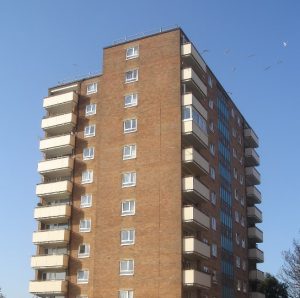New Repairing Standards for England

For some time Karen Buck MP has been making the point that there is a gap in repairing standards in England. Essentially, while landlords have an obligation to make repairs to property they are not actually required to make it suitable in the first place. So, if I rent a property out and the heating breaks down I am required to fix it. However, if I rent a property without heating at all then that is fine. The only limitation on this is the HHSRS which can require improvements to property. However, the HHSRS is highly dependent on local authorities being complained to and actually enforcing these complaints. In addition, the HHSRS cannot be used against local authority landlords as that would have local authorities enforcing against themselves and is not, in practice, much used against other social landlords due to the close relationship between them and local authorities.
There has in fact always been a minimum standard requiring homes to be habitable in section 8 of the Landlord and Tenant Act 1985. However, this minimum standard only applies to homes with a rent of £80 per annum in London (£52 elsewhere). It is these gaps that the Homes (Fitness for Human Habitation and Liability for Housing Standards) Bill is intended to address by giving tenants a power to enforce habitability standards for themselves. The bill has now gained the support of the government and has been formally published. It is therefore likely to come into effect.
The Bill only applies in England. Confusingly, it is described as extending to Wales but in fact what it happening is that s8, Landlord and Tenant Act 1985 is being repealed in both England and Wales and then replaced by a new version for England only.
The new version of s8 inserts an implied clause into all new tenancies granted after it commences. This means that it will not apply to existing fixed term tenancies but if they are renewed or extended it will apply from the date of that renewal, presumably it will also apply to tenancies that become periodic after commencement. It will also not apply to tenancies that have been entered into before the commencement date but where occupation is not actually taken up until after the commencement date. Where tenancies are periodic before commencement then the new provisions will not come into effect for 12 months after the new legislation comes into effect.
The new legislation inserts a provision that the provision is “fit for human habitation”. This is then defined by a modification to s10 of the Landlord and Tenant Act 1985 as including a range of matters which are already listed there but there is a further addition to include the list of hazards set out for the purposes of the HHSRS. It does not specify at what level the hazard must exist in order to qualify as unfit but it is likely that the effect of the bill is to allow tenants to use HHSRS assessments as an element of disrepair.
Some private landlords will be concerned by this. Undoubtedly there are elements of this that will lead to new areas of disrepair becoming actionable. However, many properties will be entirely unaffected and this will do more to deal with those properties which are of poorer quality but do not currently fall within the limited areas of disrepair covered by the current legislation. It is likely that the greater difficulty will be faced by social landlords. They are often able to avoid disrepair claims based on the fact that they have complied with the minimal requirements of existing disrepair standards while the properties themselves would not pass an HHSRS inspection were one to be made and enforceable. This is likely to be something that changes. As the legislation specifically permits the court to order work to be done as well as damages to be paid it is likely that some local authorities and social landlords may be facing substantial costs in bringing their properties up to the requisite standards.

No comments